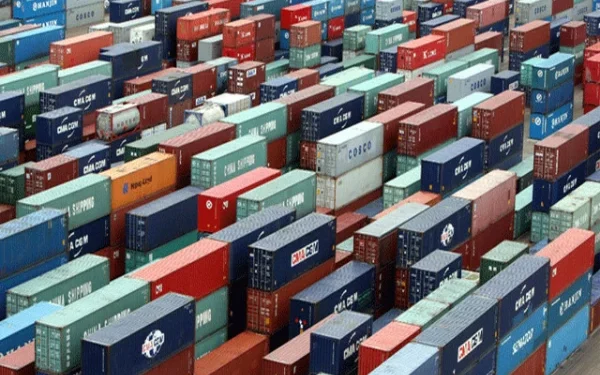ISLAMABAD – In a move reflecting Pakistan’s ongoing commitment to fiscal discipline and international financial obligations, Prime Minister Shehbaz Sharif has firmly rejected a proposal to abolish the 18% sales tax on local shipments of goods, raw materials, and machinery intended for exporters. The decision, made during a high-level meeting at the Prime Minister’s House just before his official visit to Belarus, was reportedly influenced by the government’s desire to avoid any negative reaction from the International Monetary Fund (IMF).
Background: The Sales Tax Controversy
The proposal to remove the 18% General Sales Tax (GST) was tabled by Federal Minister for Planning and Development, Ahsan Iqbal. The idea behind the suggestion was to provide relief to local exporters, stimulate industrial activity, and enhance competitiveness in global markets. Local manufacturers and exporters had voiced concerns that the imposition of the sales tax on locally sourced raw materials was increasing their cost of production and putting them at a disadvantage compared to importers.
However, the removal of this tax would have directly contradicted commitments made by Pakistan to the IMF under its ongoing Extended Fund Facility (EFF). The IMF has consistently urged Pakistan to broaden its tax base and reduce exemptions in order to improve revenue collection and reduce the fiscal deficit.
Prime Minister’s Decision: Prioritizing Fiscal Stability
Prime Minister Shehbaz Sharif, while sending the proposal back to the ministerial committee, emphasized the need for caution. According to sources, he stressed that any decision that could trigger negative reactions from the IMF must be avoided, especially in light of Pakistan’s fragile economic situation and its dependence on continued support from global financial institutions.
“The prime minister has instructed the committee to consult stakeholders, including local exporters, and to develop a revised proposal that maintains parity between importers and local manufacturers,” a government official familiar with the matter disclosed.
Economic Rationale: Leveling the Playing Field Between Importers and Exporters
One of the major factors behind the prime minister’s rejection was the growing imbalance created after the sales tax was implemented. Local industrialists, seeking to avoid the tax burden, shifted towards importing raw materials, which do not yet carry the same 18% tax, thereby undermining the local supply chain and adding pressure on the country’s already strained foreign exchange reserves.
In response, the government is now considering a new policy to impose the same 18% sales tax on the import of raw materials and machinery. This would create a level playing field between domestic and international suppliers, ensuring fairness while also protecting local industry and conserving foreign currency reserves.
The IMF Factor: Fear of Repercussions
The IMF has played a critical role in keeping Pakistan’s economy afloat, having extended multiple loan tranches tied to structural economic reforms. Among the key conditions has been the implementation of an 18% sales tax across the board to increase revenue collection. The international lender has explicitly advised against exemptions or reductions that could hinder Pakistan’s ability to meet its fiscal targets.
Officials at the meeting cautioned that any backtracking on this policy—especially after verbal assurances given to the IMF—could compromise the trust between the two parties. With a new review by the IMF scheduled in the coming months, the government is wary of making any moves that could derail ongoing negotiations for the next installment of the loan.
Exporters’ Perspective: Mounting Pressure and Rising Costs
Local exporters have expressed frustration at the 18% GST on domestic raw material shipments. They argue that this tax has increased their input costs significantly, making Pakistani goods less competitive on the global market. Several industry bodies have demanded that the government either remove the tax or introduce compensatory subsidies.
However, with the government prioritizing fiscal consolidation, it has become increasingly difficult to justify tax exemptions or subsidies that reduce the state’s revenue generation capacity. The new directive from the prime minister—to consult exporters and stakeholders—signals an attempt to balance these competing interests without undermining the broader economic stabilization agenda.
Foreign Exchange Reserves and Import Trends
The shift by industrialists from domestic raw material sourcing to imports not only disrupted local supply chains but also contributed to the depletion of Pakistan’s foreign exchange reserves. The country has been battling a balance-of-payments crisis for months, with reserves dropping to precarious levels.
This trend contradicts the government’s broader economic strategy of import substitution—reducing dependence on foreign goods by strengthening domestic production. Officials argue that retaining the sales tax and imposing it uniformly on both local and imported materials will reduce import dependency and protect foreign exchange.
Call for Consensus: Inclusive Policy Development
While rejecting the immediate implementation of the proposal, Prime Minister Shehbaz Sharif has instructed that the relevant ministries and stakeholders engage in further consultations. The aim is to create a new proposal that ensures equal opportunity for both importers and exporters while protecting the state’s financial interests.
This move reflects a growing recognition within the government of the need for policy inclusiveness and transparency. By involving exporters and business associations in the decision-making process, the government hopes to avoid backlash and ensure smoother implementation of tax reforms.
Political Dimensions and Public Perception
The rejection of the sales tax abolition proposal also has political implications. The Shehbaz Sharif government, already facing criticism over inflation and economic mismanagement, must tread carefully to maintain public support. While the decision may not be popular among business circles, especially exporters, it underscores the government’s commitment to long-term economic stability over short-term political gain.
Furthermore, this move aligns with broader reforms aimed at improving tax compliance and minimizing tax evasion. Reducing exemptions and enforcing uniform tax policies are considered essential steps toward a more transparent and equitable tax system.
Conclusion: A Balancing Act Between Relief and Responsibility
Prime Minister Shehbaz Sharif’s rejection of the proposal to abolish the 18% sales tax on raw material shipments is a strategic decision aimed at safeguarding Pakistan’s economic interests and maintaining credibility with international financial institutions like the IMF. By emphasizing stakeholder consultation and proposing equal tax treatment for imports, the government is attempting to strike a balance between supporting local industry and adhering to fiscal discipline.
As the economy continues to recover from a period of instability, such policy decisions will play a crucial role in shaping Pakistan’s financial future. Whether exporters will be satisfied with the forthcoming reforms remains to be seen, but for now, the government has made its priorities clear: fiscal stability, economic equity, and international credibility.

























